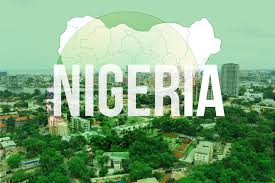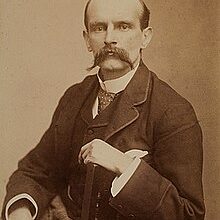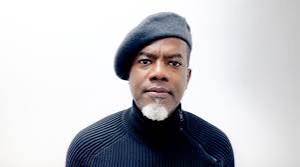Archaeology Of Madness

By Wole Olujobi
“Okonkwo is the conscience of an embattled race in the dialectic of history, discuss,” screamed Professor Adebayo Williams to us his Literary Studies students at the University of Ife in a class test to dissect the psychological appraisal of the protagonist, Okonkwo, in Chinua Achebe’s ‘Things Fall Apart’.
Achebe’s classic explores the conflict between tradition and the forces of change within which Okonkwo seeks his personal destiny to represent the collective destiny of all the people of his Umuofia clan. To achieve his aim, Okonkwo deploys coercion and other strong arms tactics to whip his people into the line to stay with the culture, which at the end becomes problematic, as the world around him shifts irrevocably, resulting in isolation for Okonkwo. Eventually, Umuofia survives the assault on the dynamics of history while Okonkwo is consumed by the whirlwind of change.
In the contemporary Nigeria, power relations and quest to maintain the status quo has since pitted the old order against the new order of change, which is threatening the old order as things fall apart within the ruling class that has several Okonkwos who prefer to sustain the old order with its distortions and chaos.
The Nigeria new order that aims for progress and unity is led by several notable leaders in the North working with their Southern counterparts, who argue and insist in favour of power shift to the South in a North-South power-sharing arrangement to keep the peace in the fragile Nigerian federation. But for the Okonkwos of the Nigerian politics led by the likes of former Vice President Atiku Abubakar, the old order that threatens the unity of the country is the way to go.
Apparently intent to halt the course of history for a united nation anchored on political justice that is rooted in power shift, he is today leading a coalition of self-preservationists in direct conflict with the new order for the preservation of all Nigerians’ collective destiny led by President Bola Ahmed Tinubu and Vice President Kashim Shettima.
Ranged against Tinubu and Shettima is a coalition of preservationists led by Atiku, including Malam Nasir el-Rufai, who is the most vociferous fighting tooth and nail, including scaling the fences and turning into a bat on a moving vehicle, to clip the wings of change that is moving Nigeria from
the relics of the old, squalid political and economic order that is antithetical to the thesis of the ethos that govern modern vision for progress.
The preservationists are resisting the new order that applies the brain where the brawn failed over the years, to change the course of the nation for progress. For them, like Okonkwo, their personal destiny must be the collective destiny of all Nigerians, preferring the old order, like cancer, to continue its progressive malignancy to hound the present and haunt the future.
This fixation to the old order with implication for arrested development, like the Okonkwo’s clan, was the theme explored by Prof Williams in his lecture session in our 1986 class, which explored Okonkwo’s psychic fixation clashing with the moving course of modernity; a conflict between tradition and the forces of change, which the mob of preservationists champion and wish to spread and leave festered like a malignant cancer.
Atiku and his allies’ metastasis can be located in the logic of Komitas Vertabed’s ailment in the book, “Archaeology of madness” by author Rita Soulahian Kuyumjian, in one moment of ‘searching for an object in Sokoto (Sokoto State capital) that sits pretty in the searcher’s “sokoto” (trousers)’ consequent upon the effects of the devastating 1915 Armenian genocide that stoked malady in the survivors of the pogrom, but which must be cured.
The book is a rave literary offering of historical significance, which explores the political perspectives of the campaign of deportation and mass killings conducted against the Armenian subjects of the Ottoman Empire by the Young Turk government during World War I in 1915.
Komitas, a musicologist and rare icon in the Armenian arts world, was one of the survivors of the genocide.
Komita’s life as an artist represented a process of healing his own psychic wounds inflicted by that genocide. By the time his psychological trauma had completely ruined him by running him mad and was admitted in hospital, no one knew what would have compounded a collective trauma of the Armenians that was threatening to claim Komita’s life and indeed claimed his life.
One of his lieutenants, Louise Hovanissian Fauve, sought his medical files to find out the cause of his death. He sifted through his medical records, including conducting archaeological search at the genocide site, to find out the cause of the complications that led to his death. He found none, thereby realising that it was “mad” conducting a research that amounted to nothing, as nothing took Komina’s life but the trauma of the genocide, just like the posttraumatic disorder arising from the collapse of the old order in Nigeria is taking its toll on the psychy of the power mongers that have refused to embrace the new order that guarantees the survival of the nation.
Like Okonkwo, the power mongers are failing in their resistance, as the old order is being challenged and overthrown by the order of progressive vision by Tinubu’s administration; for the forces of resistance are too weak to withstand the tsunami of change: no man can hold back the course of history.
Today, Atiku, like Okonkwo, apparently buffeted by a psychic disorder, and like a demented hen that sucks its finest eggs, is dismantling the edifice he built over the years in PDP to embrace a platform that holds no promise for his political survival. Infirmity, they say, begets malady!
Atiku’s political cellmate and soul mate, the breathless El-Rufai, like the Madman of Gadara tormented by the legion of demons, has been busy scaling the fences; monkeys on moving vehicles, launches heresy against Islam by decking out in Celestial Church robes and, like the Pharisees, tax collectors and other enemies of the Cross, has turned church congregations into the malls of false prophets in frenetic campaign to demarket the new order for national salvation.
In far away Owerri in frantic effort to halt the course of history, El-rufai mounted a vigorous campaign against Tinubu’s administration, accusing the President of not fixing in two years Nigeria’s problems that were created by the administrations that he (El-Rufai) served for 16 years as a governor and minister.
Observers have alleged that in order to sustain the old order, desperate moves are being orchestrated in an impish solidarity to recruit former President Goodluck Jonathan into the race to have two prominent candidates from the South to divide southern votes while Atiku emerges in ADC to appropriate the entire Northern votes for victory.
The message is being delivered in the South already ahead of more complex sophistry to take the presidential cake as can be seen in El-Rufai’s Imo campaign.
So far, the supplementary elections in which APC won 12 of the 16 Constituency seats while Atiku and his men won none has proven conclusively that the class struggle between the forces of reaction and progressive change is being resolved in favour of the latter. Yet like the people seeking sanity in insanity, they still nurse the hope where none exists to change the tide. Eventually, the new Nigeria is here, even as Atiku and his men risk Okonwo’s fate in his failure to embrace Umuofia’s transition to a modern world with its splendour and grandeur.
Here, the logic of Okonkwo’s traumatic preference coincides with Komita’s malady as the echoes of their troubled existence still haunt and refuse to leave them, just like the burden of the old order in Nigeria is taking its toll on the anti-change elements that hold tight to the past.
It is indeed a tragic accident of history if things have become so despondent that literary cudgels have now become the rods to whip the preservationists into the line in the autumn of their lives to give peace a chance to cobble and couple Nigeria to move Nigeria from the 19th century conditions characterized by widespread poverty, deplorable living and working conditions for the working class, environmental pollution from industrialisation, and the exploitative accumulation of wealth by a few, leaving the large masses of the population in poverty.
As self-imposed madness is the worst form of malady that a man can suffer in the course of the dynamism of modern history, those in warm embrace with the status quo are the conscience of the embattled order in the dialectic of history that is being resolved in favour of a more united, progressive Nigeria led by visionary leaders.
For the Okonkwos of the embattled Nigeria, as Umuofia survives Okonkwo and his assault against the change that consumes him, they must learn to cope with the consequences of resistance against renaissance, for their current gambit to reinvent the past cannot yield any salvation but an adventure into the archaeology of madness that yields nothing but opening a page to record casualties among those who stand on the course and dynamics of history. Okonkwo is my witness!
*Olujobi, a journalist, writes from Ado-Ekiti





